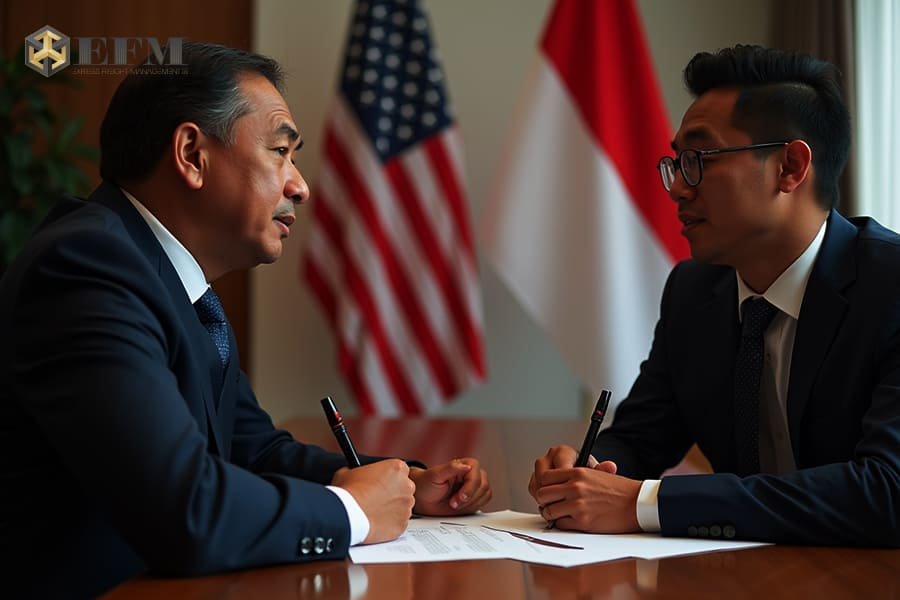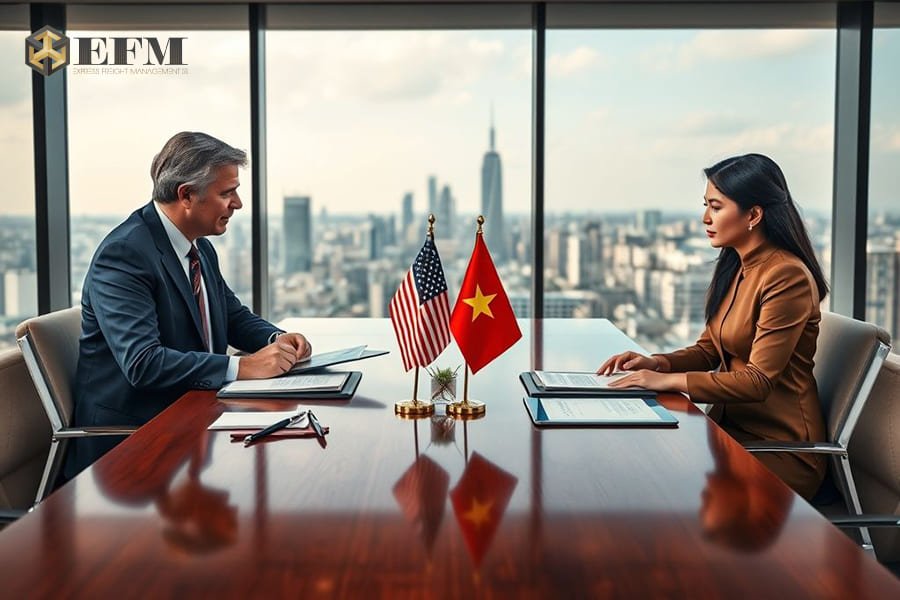
Freight News
Navigating the New US Solar Tariffs: A Guide for Importers from Malaysia, Thailand, Cambodia & Vietnam

A recent determination by the U.S. International Trade Commission (ITC) has sent significant ripples through the solar energy supply chain, particularly for businesses importing solar products from key Southeast Asian nations. The ITC’s “yes” vote affirmed that domestic U.S. solar panel makers have been materially harmed or threatened by imports from Malaysia, Thailand, Cambodia, and Vietnam.
This decision paves the way for the Commerce Department to enforce countervailing and anti-dumping tariffs on solar goods (i.e. solar tariffs) from these countries, a move that will undoubtedly impact importers relying on these established manufacturing hubs. If your business sources solar panels or related components from these ASEAN nations, understanding these changes and preparing for their impact is now a critical priority for your USA-ASEAN logistics.
Understanding the Tariffs: Countervailing & Anti-Dumping Explained

At the heart of this development are two types of tariffs: countervailing duties (CVD) and anti-dumping duties (AD). In simple terms, countervailing duties are imposed when a foreign government is found to be providing subsidies to its domestic producers, giving them an unfair advantage in the U.S. market. Anti-dumping duties, on the other hand, are applied when foreign companies are selling goods in the U.S. at prices lower than their fair market value or cost of production.
The Commerce Department’s investigation concluded that such practices were occurring with solar products originating from factories in Malaysia, Thailand, Cambodia, and Vietnam, often linked to Chinese companies, prompting these protective measures for U.S. manufacturers. These changes underscore the importance of accurate documentation for customs clearance.
Direct Impact on Your Bottom Line & Logistics
For importers, the most immediate and tangible consequence of these new tariffs will be an increase in the landed cost of solar products sourced from the affected nations. This means the final price paid, including shipping, insurance, and now these additional duties, will be higher. This can significantly affect project budgets, profit margins, and overall competitiveness.
Beyond the financial impact, businesses should also anticipate potential changes in customs clearance procedures. Shipments from these four ASEAN countries may face increased scrutiny, potentially leading to new documentation requirements or more detailed inspections to ensure compliance with the new tariff orders. This could, in turn, lead to delays. The timing of these tariffs will also be crucial, affecting how existing orders already in transit are treated versus future shipments planned under previous cost structures.
Impact on Specific ASEAN Nations (Malaysia, Thailand, Cambodia, Vietnam)
The imposition of these tariffs will inevitably alter the competitive landscape for shipping from Malaysia to USA, shipping from Thailand to USA, as well as that of Cambodia and Vietnam, as preferred solar manufacturing hubs for the U.S. market. These nations have benefited from significant investment in solar production capacity, partly as a way for manufacturers to navigate previous trade measures targeting China directly.
However, these new duties could diminish their cost attractiveness for U.S.-bound goods, potentially leading to a re-evaluation of future investment in these locations by solar companies. We may see shifts in global solar manufacturing strategies, with companies possibly exploring diversification to other regions or even considering further investments within the U.S. itself, encouraged by incentives like the Inflation Reduction Act.
The long-term effects will depend on the final duty rates, the response of manufacturers in these ASEAN countries, and the broader global demand for solar products. Businesses may also need to re-evaluate their reliance on specific sea freight routes.
Immediate Steps for Importers to Consider

Given these impending changes, proactive steps are essential for importers to mitigate disruption and manage costs effectively. Firstly, it’s advisable to conduct a thorough review of current sourcing strategies. Evaluate your reliance on manufacturers in Malaysia, Thailand, Cambodia, and Vietnam and explore the feasibility of alternative sourcing options, if necessary.
Secondly, a careful audit of customs classifications and valuation declarations for all imported solar products is crucial. Ensuring accuracy here can prevent further complications or penalties, a common challenge in navigating customs and regulations between the USA and ASEAN. Finally, importers should engage in detailed discussions regarding potential delays and consider strategic adjustments to buffer inventory planning to avoid stockouts or project disruptions, possibly leveraging warehousing solutions.
Express Freight Management
In this evolving trade environment, partnering with a knowledgeable logistics provider specializing in USA-ASEAN trade routes can provide invaluable support. At Express Freight Management, we are closely monitoring these developments and are equipped to assist our clients in navigating this new landscape. Our team offers expertise in customs brokerage, particularly for complex tariff situations like this, ensuring your shipments comply with all new regulations.
We can provide detailed advisory services on calculating accurate landed costs, incorporating these new duties, so you have a clear picture of your financial exposure. Our comprehensive logistics services are designed to support you. Furthermore, we can help explore alternative shipping strategies or, where applicable and legally sound, discuss options for duty mitigation. Most importantly, we commit to keeping our clients informed with the latest updates from the Commerce Department as implementation details are finalized – stay tuned to our freight news section.
Conclusion
The global trade landscape, especially for dynamic sectors like solar energy, is constantly shifting. The imposition of these new tariffs on solar products from key ASEAN nations underscores the importance of agility and proactive planning. By understanding the implications and taking decisive action now, importers can better navigate these changes and protect their supply chains. We encourage you to contact us today to discuss how these new tariffs might specifically affect your solar imports from Malaysia, Thailand, Cambodia, or Vietnam, and to learn how our specialized logistics solutions can assist your business in adapting effectively. Understanding the benefits of a freight forwarder for ASEAN trade can make a significant difference.
Streamline your logistics with Express Freight Management – your trusted partner for seamless global shipping solutions. As a leading international freight forwarder based in the United States, we have successfully managed trades between the United States and Brunei, Cambodia, Indonesia, Laos, Malaysia, Myanmar, Philippines, Singapore, Thailand, and Vietnam for nearly two decades. With expert knowledge, advanced technology, and a commitment to reliability, we provide seamless logistics management that helps you focus on what matters most—growing your business.





